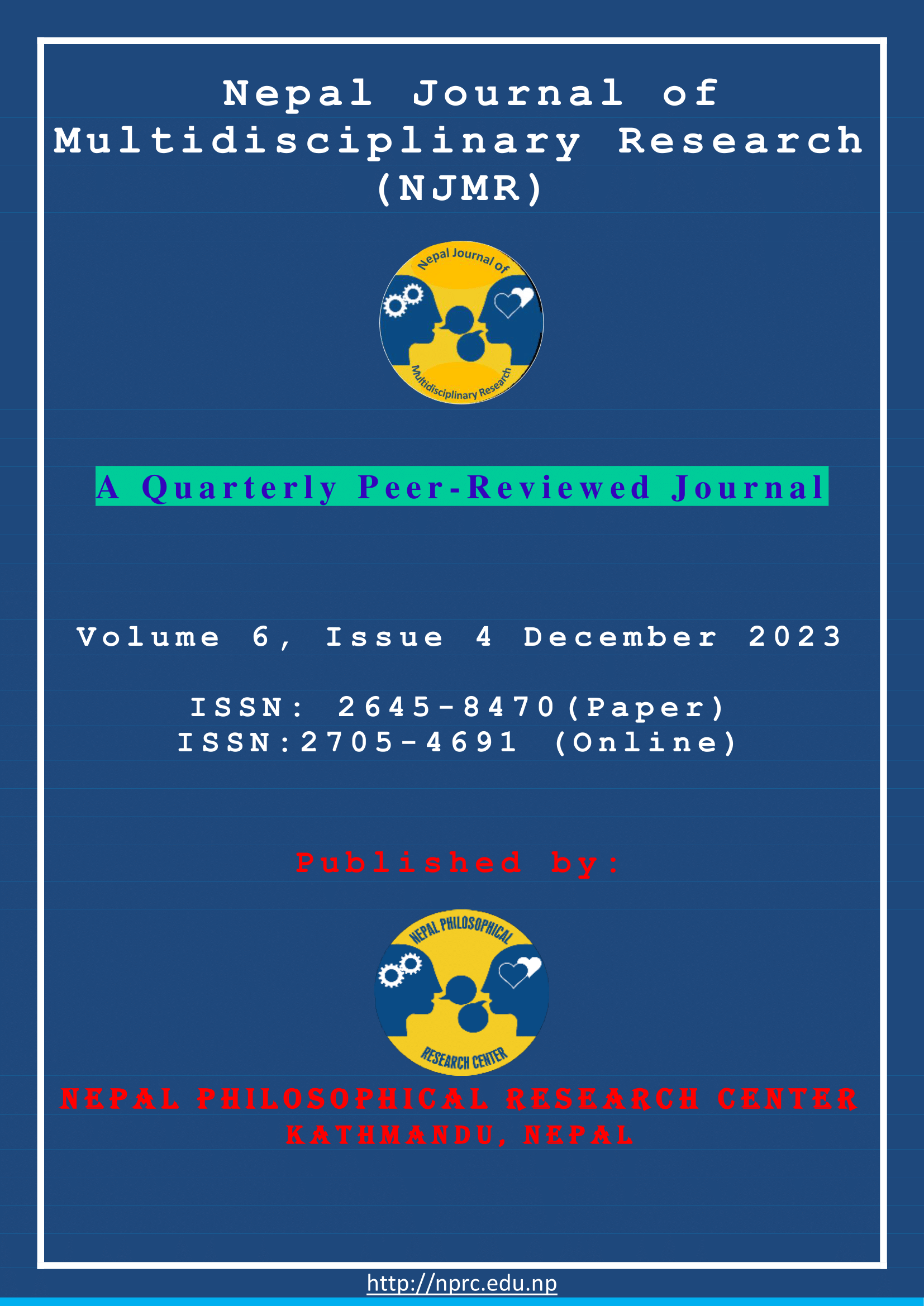Exploring the Nexus of Colonialism, Indigenous Knowledge and Climate Action in Amitav Ghosh’s The Living Mountain: A Fable of Our Times
DOI:
https://doi.org/10.3126/njmr.v6i4.62045Keywords:
Climate action, Colonialism, Eco-criticism, Indigenous Knowledge, ResistanceAbstract
This paper in Amitav Ghosh's The Living Mountain: A Fable of Our Times (2022) depicts the complex nexus between climate action, colonialism, and indigenous knowledge. Set in a remote Himalayan valley, the story follows the warring tribes who live around a sacred mountain, later forced to become the servants of the 'Anthropoi', the foreigners who have come there to climb and mine the mountain. The outsiders’ interests in exploring the mountain and its natural resources have threatened the lives of the natives. A postcolonial eco-critical approach is adopted to investigate how Ghosh portrays the relationship between climate change and colonialism through illustrations of invaders’ dismissal of the indigenous knowledge on environmental issues, de-sacralisation of the Sacred Mountain, etc. Similarly, the study explores the mind of the writer who seems to argue that climate change is a direct consequence of colonialism, which has led to a worldview that promotes nature as something to be conquered and exploited. Similarly, this study emphasizes the importance of indigenous knowledge for climate action, suggesting that it is essential for developing sustainable solutions to the climate crisis.
Downloads
Downloads
Published
How to Cite
Issue
Section
License
Copyright (c) 2023 Babu Ram Khanal, Preeti Pankaj Gupta

This work is licensed under a Creative Commons Attribution-NonCommercial 4.0 International License.
This license enables reusers to distribute, remix, adapt, and build upon the material in any medium or format for noncommercial purposes only, and only so long as attribution is given to the creator.




